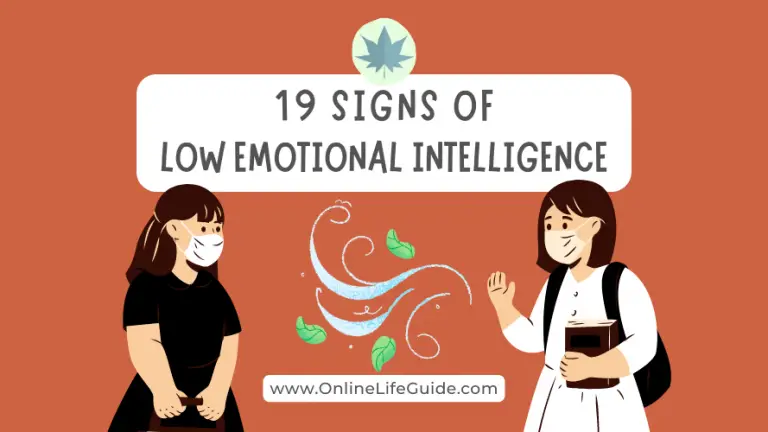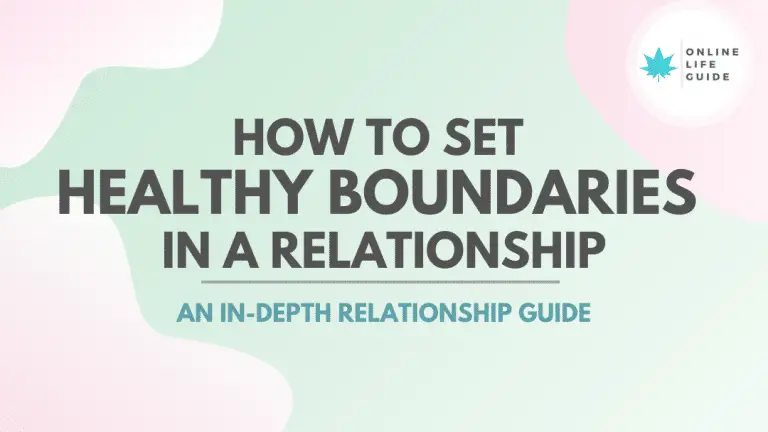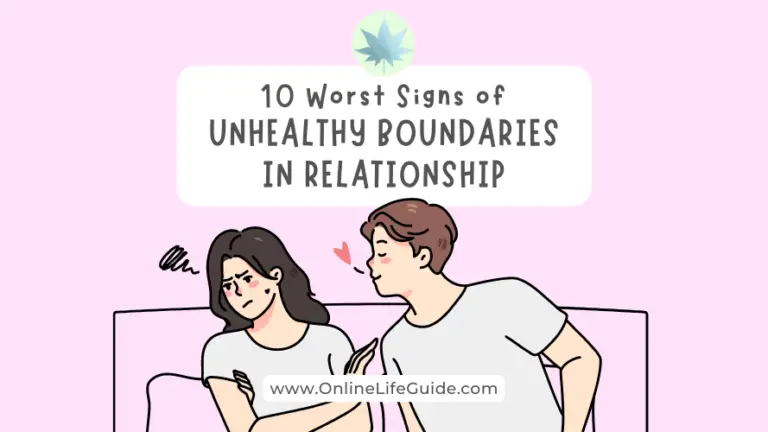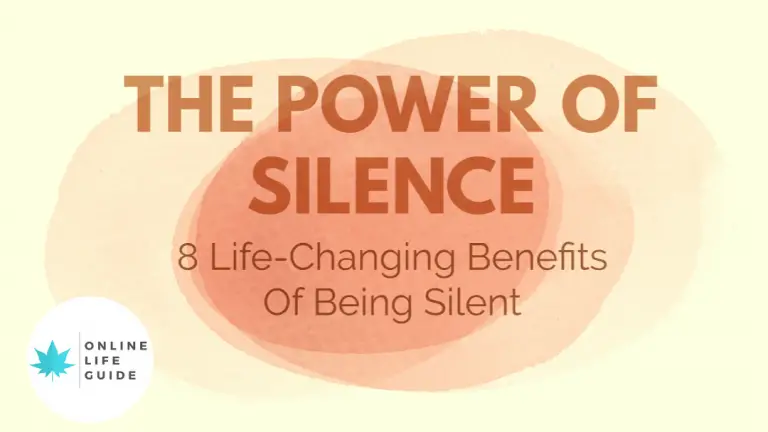How to Handle Conflicts More Maturely – 5 Step Guide

This article is part of the Emotional Maturity Series – a series of articles that discusses emotional maturity in depth. In this article, we will look into 5 Steps to Handle Conflicts Maturely.
Conflict is woven into the fabric of our lives. It’s inevitable and it arises in our closest relationships, professional settings, and even casual day-to-day interactions. While conflict can feel disruptive and unpleasant, it also presents a powerful opportunity for growth, both personally and interpersonally.
The key lies in handling conflicts maturely, transforming it from a source of friction into something that deepens your understanding and connection with people.
Many of us, however, fall into the trap of blame-shifting, passive-aggressive behavior, or emotional outbursts while dealing with conflicts, which leaves the underlying issue unresolved and damages our relationships in the process.
This article serves as a guide to navigating conflict with maturity, empathy, and effectiveness.
We’ll explore five key steps that can transform your approach to conflict, fostering stronger connections and personal growth.
Step 1: Practice Self-Awareness

The foundation of mature conflict resolution lies in being aware of yourself before attempting to understand the other person.
Before engaging in any discussion, take a moment to step back and assess your own emotional state. What are you feeling? Are you angry, hurt, or frustrated?
Identifying your emotions allows you to manage them effectively, preventing them from clouding your judgment or fueling unproductive reactions.
Here are some strategies to enhance self-awareness during conflict situations:
- Take a time-out: Before responding in the heat of the moment, excuse yourself and take a few deep breaths to allow your emotions to settle.
- Journal your thoughts and feelings: Writing down your emotions can provide clarity and help you identify underlying triggers or biases.
- Practice mindfulness techniques: Techniques like meditation can help you become more aware of your thoughts and emotions without judgment.
By understanding your own emotional landscape, you gain the power to choose your response rather than letting your emotions dictate your behavior.
Step 2: Embrace Active Listening

Truly listening to the other person goes beyond simply waiting for your turn to speak.
It requires actively seeking to understand their perspective. Here are some key principles of active listening:
- Pay full attention: Put away distractions and focus solely on the other person’s words and nonverbal cues.
- Paraphrase what you hear: Reflect back on what you’ve understood to ensure you’re accurately capturing their perspective.
- Avoid interrupting: Allow the other person to fully express themselves before offering your own thoughts.
By actively listening, you demonstrate respect and build trust, creating a safe space for open communication and collaboration.
I have a complete guide on How to Practice Active Listening to Improve Your Relationships. Highly recommend that you check that out if you want to improve your communication with your loved ones (and other people of course). You can read it HERE.
Step 3: Focus on the Issue, Not the Person

In the heat of conflict, it’s easy to fall into the trap of personal attacks. This only serves to escalate the situation and hinders the possibility of finding common ground.
Instead, shift your focus to the specific issue at hand and avoid going into tangents of personal attacks.
- Clearly define the problem: Identify the specific behavior, action, or situation causing the conflict.
- Use “I” statements: Communicate your feelings and concerns without resorting to blame or accusations (e.g., “I feel frustrated when…” instead of “You always…”). A few examples of this would be:
- “I feel frustrated when I come home and the dishes haven’t been done, as we agreed to share household chores.” (instead of “You never do the dishes!”)
- “I feel hurt when you make plans with friends without checking with me first, as we usually like to include each other in our social activities.” (instead of “You never consider my feelings!”)
- “I feel overwhelmed when you give me multiple tasks at once without clear deadlines, as it makes it difficult for me to prioritize effectively.” (instead of “You’re always so disorganized!”)
- “I feel disappointed when you don’t follow through on your commitments, as it makes it difficult for me to trust your word in the future.” (instead of “You can’t be trusted!”)
- “I feel disrespected when you interrupt me while I’m speaking, as I value being heard and understood in our conversations.” (instead of “You’re always so rude!”)
- Maintain a respectful tone: Even in disagreement, treat the other person with courtesy and respect. Never resort to insults, or you’ll never have your conflicts resolved.
When you focus on the issue itself, you create a space for constructive dialogue and problem-solving. The other person doesn’t feel the need to get into a defensive state because you’ve created a neutral and constructive discussion which paves the way for a mutually beneficial resolution.
Step 4: Seek Common Ground and Collaborative Solutions

Conflict often arises from differing perspectives and needs. However, within those differences lies the potential for common ground.
Look for shared interests and goals related to the conflict, even if they seem subtle at first.
- Brainstorm solutions together: Encourage both parties to contribute ideas for resolving the issue.
- Be open to compromise: Finding a solution that meets both parties’ needs may require some flexibility and willingness to compromise.
- Focus on the future: Shift your focus from assigning blame to finding solutions that will prevent similar conflicts from arising in the future.
By seeking common ground and working collaboratively, you transform conflict from a battle to be won into a collaborative effort towards a mutually beneficial outcome.
Step 5: Maintain Openness and Respect

Even in the face of sheer disagreement, respectful communication is paramount. This means:
- Avoiding personal attacks and insults.
- Acknowledging the other person’s feelings and perspective, even if you disagree.
- Maintaining an open mind to different viewpoints and potential solutions.
By consistently maintaining respect and open-mindedness during conflicts, you create a proactive pattern in your relationships. Over time, the other person also begins to understand that getting into a conflict or disagreement with you, isn’t that bad at all.
They too learn to mirror your etiquettes of disagreement by managing their emotions, being respectful, and being open to considering other perspectives because they know that their perspective will be heard and considered and that there is no need to guard up and staunchly defend their stance.
A very simple yet important thing to always remember is that the goal is not to “win” the argument but to find a solution that works for everyone involved.
Mastering the Art of Conflict Resolution
Mastering the art of MATURE conflict resolution takes practice and conscious effort. By following these five steps you equip yourself with the tools to navigate even the most challenging situations with grace and effectiveness.
If you want to read more on “Having healthier arguments in a relationship”, check out this guide.
As you learn to handle conflicts more maturely, you’ll notice some profound changes in your life:
- Stronger relationships: By addressing issues constructively and respectfully, you build trust and deepen the bonds with those around you.
- Personal growth: Conflict presents opportunities to learn about yourself and develop emotional intelligence and communication skills. In essence, it’s your opportunity to grow wiser.
- Improved problem-solving skills: By working collaboratively towards solutions, you hone your ability to think creatively and find win-win outcomes. This trait/skill permeates into all other areas of your personal and professional life.
Conflict is not inherently negative. It’s a natural part of life, and when approached maturely, it can be a catalyst for growth, connection, and positive change.
So, the next time you find yourself in a disagreement, take a deep breath, apply these steps, and transform conflicts from being a source of stress into an opportunity to gain wisdom and build stronger and more fulfilling relationships.
Bonus Tip
Throughout your life, seek opportunities to observe and learn from individuals who handle conflict with maturity and grace. Notice their communication style, their ability to listen, build rapport, and handle difficult people, and their focus on finding solutions.
By observing these individuals, you can continuously refine your conflict resolution skills and navigate life’s challenges with greater effectiveness.
I hope this guide from the Emotional Maturity Series served you well. Feel free to share your thoughts in the comments section below.
Take good care of yourself. See you in the next one!








